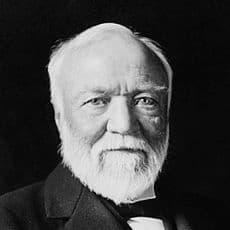220 Quotes
"motivation only starts to build again once we have taken the first steps and gained some momentum in our task."
— Hannah Rose
The science of motivation: how to get and stay motivated"Lao Tzu: “The journey of a thousand miles begins with a single step.” Motivation is all about getting started and consistently taking action, making sure we get back on track when we fall off the bandwagon."
— Hannah Rose
The science of motivation: how to get and stay motivated"There are two types of motivation: intrinsic and extrinsic. When interest or enjoyment in an activity comes from within us, we experience intrinsic motivation."
— Hannah Rose
The science of motivation: how to get and stay motivated"Intrinsic motivation associated with doing what you love therefore strongly correlates with sustained behavioural change and improved well-being, because the activity itself brings pleasure."
— Hannah Rose
The science of motivation: how to get and stay motivated"If you enjoy what you do, the activity and the goal will collide so that both your interest and experience of work are enhanced."
— Hannah Rose
The science of motivation: how to get and stay motivated"With extrinsic motivation, the outcome you desire is separate to the activity you engage in to achieve it, which will make dips in motivation more likely."
— Hannah Rose
The science of motivation: how to get and stay motivated"Motivation has been studied for many years, and one of the most popular schools of thought is Self-Determination Theory. This theory uses empirical methods to highlight the importance of self-regulation, the process of taking in social values before transforming them into our own values and self-motivations."
— Hannah Rose
The science of motivation: how to get and stay motivated"Writing in the American Psychologist journal, Richard Ryan and Edward Deci highlighted the three innate psychological needs which must be satisfied to enhance self-motivation and mental health: competence, autonomy and relatedness."
— Hannah Rose
The science of motivation: how to get and stay motivated"If we feel competent in a behaviour, either as a result of feedback, communication or rewards, our intrinsic motivation will be greater."
— Hannah Rose
The science of motivation: how to get and stay motivated"Relatedness is often more relevant to extrinsic motivation. If a behaviour is valued by a manager, client, or friend, we will feel a sense of connectedness with them, which will lead to internalisation of an extrinsic motivation."
— Hannah Rose
The science of motivation: how to get and stay motivated"It’s not just goals that are too hard that can cause demotivation. If a goal is too easy or will not lead to a suitable reward, you may lack the drive to pursue it despite it being achievable."
— Hannah Rose
The science of motivation: how to get and stay motivated"Whether your motivation for change is internally or externally motivated, you cannot sustain motivation without having an aim clearly in focus."
— Hannah Rose
The science of motivation: how to get and stay motivated"Motivation will only come once we have started a task or behaviour, not before we get going. Rather than letting tasks accumulate until they feel insurmountable, the best strategy is to generate the momentum required to conquer a long-term goal by consistently showing up every day."
— Hannah Rose
The science of motivation: how to get and stay motivated"As Confucius put it: “The man who moves mountains begins by carrying away small stones”."
— Hannah Rose
The science of motivation: how to get and stay motivated"Focus on the right goals. Intrinsic motivation will occur naturally if you choose a goal you care about. If you don’t feel committed or connected to the goal, you’ll need to rely mostly on willpower, which isn’t sustainable in the long-term."
— Hannah Rose
The science of motivation: how to get and stay motivated"Practice self-reflection. To promote motivation, you need to take care of yourself. Allow time for self-care, such as reading and exercise, and commit to self-reflection."
— Hannah Rose
The science of motivation: how to get and stay motivated"For our ancestors, being more popular was a survival advantage. Social status offered greater group protection and longevity, which means that they were more likely to reproduce."
— Hannah Rose
The psychology of prestige: why we play the social status game"Professor Cameron Anderson explained that status influences how we behave and think."
— Hannah Rose
The psychology of prestige: why we play the social status game"Dr Sabina Siebert from the University of Glasgow found that when faced with competition from other professions, barristers protected their prestige with the use of status symbols including professional dress, ceremonies and rituals. She concluded that this allowed “elite professionals to maintain their superior status.”"
— Hannah Rose
The psychology of prestige: why we play the social status game"Eugene Wei, who has worked in media, technology and for consumer internet companies, wrote that social media is built on the idea that it offers an efficient way to accumulate social capital."
— Hannah Rose
The psychology of prestige: why we play the social status game"In his book Status Anxiety, philosopher Alain de Botton writes that the anxiety about what others think of us and about whether we are judged a success or a failure can lead us to make decisions that are self-defeating, lower our self-worth, or are at odds with our values."
— Hannah Rose
The psychology of prestige: why we play the social status game"If you decline opportunities for personal growth or self-discovery while striving for status, you could progress fast, but not in the right direction."
— Hannah Rose
The psychology of prestige: why we play the social status game"Take time to consider whether the goal or motivation is truly aligned to your values, or if you are being coerced by a desire for prestige."
— Hannah Rose
The psychology of prestige: why we play the social status game"find friends online and in real life who are not playing the status game. This will help to avoid feelings of inadequacy and the desire to keep up with others."
— Hannah Rose
The psychology of prestige: why we play the social status game"Reserve time to read memoirs and biographies of those who have achieved their dreams not by striving for wealth or status, but by reflecting on what is important to them and following their own path."
— Hannah Rose
The psychology of prestige: why we play the social status game"systematically comparing ourselves to others can make us feel less capable. To avoid comparison anxiety, it’s helpful to be aware of how assessing our success based on a subjective view of how we compare to others may lead to unnecessary stress and poor mental health."
— Hannah Rose
Comparison anxiety: how to stop comparing yourself to others"Comparison anxiety has its roots in social comparison theory, which was initially proposed by social psychologist Leon Festinger in 1954."
— Hannah Rose
Comparison anxiety: how to stop comparing yourself to others"Social comparison not only helps us make sense of our own behaviours and assists us in defining who we are, but it drives us to improve and raise to the level of the ones we perceive as the most competent around us."
— Hannah Rose
Comparison anxiety: how to stop comparing yourself to others"near-constant upward comparison can also leave us with a sense of failure and inadequacy, which leads us to suffer from comparison anxiety."
— Hannah Rose
Comparison anxiety: how to stop comparing yourself to others"The researchers found that looking upwards was, in turn, associated with negative feelings and a greater chance of negative self-evaluation. Overall, social media use was found to result in lower subjective well-being due to its detrimental impact on our own self-esteem."
— Hannah Rose
Comparison anxiety: how to stop comparing yourself to others"This threat of perceived inferiority hindered cognitive performance and “resulted in reduced ability to process information.” Peer-learning situations can therefore produce negative effects on performance if students are worried about how they compare to others."
— Hannah Rose
Comparison anxiety: how to stop comparing yourself to others"using downward social comparison is a mere bandage that doesn’t really support better mental health."
— Hannah Rose
Comparison anxiety: how to stop comparing yourself to others"By highlighting our own achievements, it will be easier to avoid the anxiety associated with comparing yourself to others."
— Hannah Rose
Comparison anxiety: how to stop comparing yourself to others"Create a support circle. A support group can be another effective way to avoid comparison anxiety."
— Hannah Rose
Comparison anxiety: how to stop comparing yourself to others"habits are not always good: an important downside is that ceasing undesirable actions can be challenging."
— Hannah Rose
Habit trackers: does tracking your habits actually work?"apps are most likely to successfully support habit formation if they provide contextual cues or implementation intentions to guide goal-directed behaviour."
— Hannah Rose
Habit trackers: does tracking your habits actually work?"One of the key advantages of using a habit tracker is that it allows you to visualise your progress and identify any recurrent setbacks. This form of metacognition can help you adapt your approach and keep on improving your habit formation strategies."
— Hannah Rose
Habit trackers: does tracking your habits actually work?"when students used the habit tracker to improve their study habits, they were less likely to experience a bad mood or feel distracted while studying, and were also less likely to wish they were doing something more enjoyable."
— Hannah Rose
Habit trackers: does tracking your habits actually work?"One of the mechanisms through which habit tracking can benefit your mental health is by celebrating micro-wins throughout your personal growth journey."
— Hannah Rose
Habit trackers: does tracking your habits actually work?"another advantage of using a habit tracker — especially a digital one — is that it can remind us to act."
— Hannah Rose
Habit trackers: does tracking your habits actually work?"One problem researchers found with habit trackers is that it creates a “habit dependency” in users"
— Hannah Rose
Habit trackers: does tracking your habits actually work?"Researchers have warned that many habit tracking apps are too rigid to support our diverse practical and emotional needs"
— Hannah Rose
Habit trackers: does tracking your habits actually work?"The key to developing a habit is to find a way to ensure the desired behaviour becomes automatic. For habit tracking to be successful, it must therefore be simple and flexible, as well as encouraging self-control and goal-directed behaviour."
— Hannah Rose
Habit trackers: does tracking your habits actually work?"By avoiding missing twice, you are making space for the inevitable slip-ups, while maintaining the motivation to succeed over the long-term."
— Hannah Rose
Habit trackers: does tracking your habits actually work?"the publics’ cognitive immunity to misinformation was reinforced when they were given a pre-emptive warning about politically motivated attempts to spread misinformation on the human causes of global warming."
— Hannah Rose
How developing mental immunity can protect us from bad ideas"People with a healthy mental immune system are more likely to detect misinformation. A strong cognitive immune system can also help spot bad ideas at an earlier stage, so you may avoid wasting time, energy or money."
— Hannah Rose
How developing mental immunity can protect us from bad ideas"a healthy mental immune system will detect harmful or incorrect information that enters our mind, so that it can be recognised as such and then promptly rejected."
— Hannah Rose
How developing mental immunity can protect us from bad ideas"While factual information is a great asset, unreliable information and the inability to spot bad ideas may lead to poor decision making."
— Hannah Rose
How developing mental immunity can protect us from bad ideas"developing greater cognitive flexibility allows us to change our minds faster when new, better-evidenced information is presented to us."
— Hannah Rose
How developing mental immunity can protect us from bad ideas"Remember that misinformation is common, that fake news is designed to appear genuine, and train yourself to immediately interrogate the information or data you are presented with."
— Hannah Rose
How developing mental immunity can protect us from bad ideas"A meta-belief is a belief that one holds following a thorough reasoning process or cognitive interrogation to check the validity of the belief."
— Hannah Rose
How developing mental immunity can protect us from bad ideas"Developing meta-beliefs strongly correlates with mental immunity. To strengthen your mental immune system, be prepared to assess and re-adjust previously held beliefs if new evidence comes to light."
— Hannah Rose
How developing mental immunity can protect us from bad ideas"For greater mental nourishment, diversify your information sources and dig deeper into the underlying research to fully understand whether you are unconsciously being sold misinformation."
— Hannah Rose
How developing mental immunity can protect us from bad ideas"Recent research described emotional reasoning as a mechanism that “can lead people to take their emotions as information about the external world, even when the emotion is not generated by the situation to be evaluated.” This leads to inaccurate emotional truths which directly contradict any objective, perceptual truths."
— Hannah Rose
The danger of emotional reasoning and using our emotions as proof"Emotional reasoning was first coined by the American psychiatrist Aaron Beck in the 1970s."
— Hannah Rose
The danger of emotional reasoning and using our emotions as proof"Beck referred to thought responses to an emotion as “automatic thinking”."
— Hannah Rose
The danger of emotional reasoning and using our emotions as proof"automatic thoughts will be relevant to your state of mind, even if you do not specifically struggle with your mental health."
— Hannah Rose
The danger of emotional reasoning and using our emotions as proof"studies have shown that isolated automatic thoughts can result in negative thought cycles."
— Hannah Rose
The danger of emotional reasoning and using our emotions as proof"Increasing anxiety can begin to negatively impact your performance. You may struggle to focus, make mistakes, or see a decline in your output. This becomes a self-fulfilling prophecy, and a cycle of negative thoughts is set in motion."
— Hannah Rose
The danger of emotional reasoning and using our emotions as proof"1. Practice validity testing. Validity testing is key to checking whether you are experiencing emotional reasoning."
— Hannah Rose
The danger of emotional reasoning and using our emotions as proof"2. Write in a journal. Journaling is a great way to pay attention to your thought patterns. Specifically, you should record the difficult situations you face, and which emotions or thoughts a dilemma provokes."
— Hannah Rose
The danger of emotional reasoning and using our emotions as proof"Recording your feelings in this way will allow you to reflect on your natural thought patterns so that you can start to identify when emotional reasoning is affecting you. This provides an opportunity to reject negative thoughts before they take hold."
— Hannah Rose
The danger of emotional reasoning and using our emotions as proof"3. Discuss your emotions. If you feel anxious about work, you may struggle to accurately assess your performance. Talking to a trusted colleague or friend about your concerns could give you a much-needed objective view."
— Hannah Rose
The danger of emotional reasoning and using our emotions as proof"trying to suppress a thought “has paradoxical effects as a self-control strategy,” and can lead to obsession or preoccupation despite an individual’s best efforts to ignore the thought."
— Hannah Rose
The impact of the Pink Elephant Paradox on our emotions and decisions"this psychological process whereby our deliberate attempts to suppress certain thoughts make them more likely to surface has been named “ironic process theory” by scientists."
— Hannah Rose
The impact of the Pink Elephant Paradox on our emotions and decisions"1. Propagation of persistent negative emotions. Intrusive thoughts might include “repetitive thoughts, images or impulses.”"
— Hannah Rose
The impact of the Pink Elephant Paradox on our emotions and decisions"There is also evidence that rumination and intrusive thoughts are associated with negative thought patterns. Negative thought patterns were also found to be more common in those who did not practice mindfulness."
— Hannah Rose
The impact of the Pink Elephant Paradox on our emotions and decisions"2. Increased distractibility. A study found that those who are plagued by negative thought intrusions, and individuals who have a propensity to worry, show increased distractibility when trying to focus on a specific task."
— Hannah Rose
The impact of the Pink Elephant Paradox on our emotions and decisions"Being easily drawn away from the task in hand, by any form of distractor, disrupts focus and prompts the brain to try to multitask. Any form of disruption will stunt your professional creativity and development."
— Hannah Rose
The impact of the Pink Elephant Paradox on our emotions and decisions"3. Poor decision making."
— Hannah Rose
The impact of the Pink Elephant Paradox on our emotions and decisions"Self-reflection and mindfulness have been proven to protect individuals from the negative impact of intrusive thoughts. In particular, becoming more aware and accepting of negative thoughts or feelings can help to reduce the frequency of intrusive thoughts, as well as making them feel less distressing."
— Hannah Rose
The impact of the Pink Elephant Paradox on our emotions and decisions"By concentrating on something else, your mental energy is used elsewhere, leaving less room for intrusive thoughts."
— Hannah Rose
The impact of the Pink Elephant Paradox on our emotions and decisions"By turning negative ruminations into positive pledges, the intrusive thought loses the power it has over you. Thinking of positive solutions also helps you to make any appropriate adjustments or improvements."
— Hannah Rose
The impact of the Pink Elephant Paradox on our emotions and decisions"Mental immunity is a psychological theory that is also known as cognitive immunology."
— Hannah Rose
How developing mental immunity can protect us from bad ideas"philosopher Alfred Tauber explained that developing an “immune self” requires us to actively distinguish between the self and the foreign, so that foreign information can be interrogated and potentially defended against."
— Hannah Rose
How developing mental immunity can protect us from bad ideas"Furthermore, developing greater cognitive flexibility allows us to change our minds faster when new, better-evidenced information is presented to us."
— Hannah Rose
How developing mental immunity can protect us from bad ideas"1. Build awareness of misinformation."
— Hannah Rose
How developing mental immunity can protect us from bad ideas"2. Develop healthy meta-beliefs."
— Hannah Rose
How developing mental immunity can protect us from bad ideas"The team found that people who were politically liberal were more likely to believe that opinions and beliefs should change according to evidence. Those who were religious, or held paranormal or conspiratorial beliefs, were less likely to agree that beliefs should change."
— Hannah Rose
How developing mental immunity can protect us from bad ideas"3. Practise self-reflection. When practising self-reflection, you should start to pay attention to your patterns of consumption."
— Hannah Rose
How developing mental immunity can protect us from bad ideas"the initial investigations have shown that a strong mental immune system helps filter external information to avoid falling prey to false data or flawed ideas."
— Hannah Rose
How developing mental immunity can protect us from bad ideas"The novelty fallacy is deeply rooted in our neurobiology. It is well known that the brain’s reward system is stimulated by novel ideas and objects."
— Hannah Rose
Novelty fallacy: why new isn’t always better"As such, our attraction to novelty can be helpful for our survival, but a fast-changing environment can render this cognitive bias rather problematic."
— Hannah Rose
Novelty fallacy: why new isn’t always better"following their analysis, the researchers found that the novelty fallacy can lead to a pro-innovation bias, the belief that a certain innovation should be widely used across society without the need for any adjustments."
— Hannah Rose
Novelty fallacy: why new isn’t always better"Often, the person championing the novel idea is so strongly biased in its favour that they cannot see any shortcomings and continue to promote it regardless."
— Hannah Rose
Novelty fallacy: why new isn’t always better"Similarly, many business leaders have relied on restructuring their teams to tackle business challenges. Changes to organisational structure are often recommended for businesses in financial distress or undergoing rapid expansion."
— Hannah Rose
Novelty fallacy: why new isn’t always better"But such reshuffles are unlikely to lead to improved performance if the systematic issues are not addressed."
— Hannah Rose
Novelty fallacy: why new isn’t always better"Although the novelty fallacy occurs naturally due to how the brain’s reward system is designed, once you’re aware of this bias it is possible to avoid falling prey to its worst consequences."
— Hannah Rose
Novelty fallacy: why new isn’t always better"Document the limitations of a new approach."
— Hannah Rose
Novelty fallacy: why new isn’t always better"Expensive and time-consuming options are off the table, so it has been refreshing to learn about a free method for boosting self-awareness: proprioceptive writing. This process combines meditation and writing, two of the most effective ways to tap into the inner self."
— Hannah Rose
Proprioceptive writing: a method for embodied self-reflection"She developed the proprioceptive writing method as a tool to bring the self into focus and clarify one’s own life."
— Hannah Rose
Proprioceptive writing: a method for embodied self-reflection"The word proprioception comes from the Latin proprius, meaning “one’s own”."
— Hannah Rose
Proprioceptive writing: a method for embodied self-reflection"If we have ignored our inner voice for some time by not completing any reflective practice, we can become switched off to our own feelings and ideas."
— Hannah Rose
Proprioceptive writing: a method for embodied self-reflection"Proprioceptive writing can help us to rediscover our dreams and creative energy, while rebuilding our self-trust."
— Hannah Rose
Proprioceptive writing: a method for embodied self-reflection"The writing task only takes around 25 minutes. During this time, one listens to inner thoughts, writing down whatever is heard."
— Hannah Rose
Proprioceptive writing: a method for embodied self-reflection"Conversely, they found that embodied reflective practices such as proprioceptive writing reduced the likelihood of unhealthy rumination."
— Hannah Rose
Proprioceptive writing: a method for embodied self-reflection"The combination of writing and reflection serves as a method to connect physical sensations with thoughts that an individual might otherwise remain unaware of."
— Hannah Rose
Proprioceptive writing: a method for embodied self-reflection"By learning to listen to one’s own thoughts in a supportive, empathetic manner, it is possible to develop a stronger connection to our emotions."
— Hannah Rose
Proprioceptive writing: a method for embodied self-reflection"By connecting with physical sensations through practising proprioceptive writing, you are likely to experience better internal and external emotional connections."
— Hannah Rose
Proprioceptive writing: a method for embodied self-reflection"This self-reflection method involves writing for 25 minutes while listening to music. Professor Metcalf recommends Baroque music to aid creativity. The only equipment required is a pen and pad of plain paper."
— Hannah Rose
Proprioceptive writing: a method for embodied self-reflection"Write down what you hear. It takes practice to recognise your thoughts and convert them to words, so take your time writing down each feeling as it comes."
— Hannah Rose
Proprioceptive writing: a method for embodied self-reflection"Hear what you write. Now that you have written down your thoughts, it will be easier to listen to what your mind is saying."
— Hannah Rose
Proprioceptive writing: a method for embodied self-reflection"Go deeper for each thought. With every thought you wrote down, ask yourself: “What do I mean by…?”"
— Hannah Rose
Proprioceptive writing: a method for embodied self-reflection"The, at the end of the 25 minutes, stop writing and and ask yourself four review questions:"
— Hannah Rose
Proprioceptive writing: a method for embodied self-reflection"Which thoughts were heard but not written down?"
— Hannah Rose
Proprioceptive writing: a method for embodied self-reflection"Practising hearing intelligence can be enlightening as it helps you not only discover what is on your mind, but the meaning and significance behind these thoughts, too."
— Hannah Rose
Proprioceptive writing: a method for embodied self-reflection"To support the fast-moving targets of global businesses, a different profile now prevails: the versatilist."
— Hannah Rose
Talent archetypes: what is the shape of your skills?"The way we work is impacted by our talent archetype. The framework was devised by Gartner analyst Diane Morello."
— Hannah Rose
Talent archetypes: what is the shape of your skills?"Each archetype can be described in terms of the “shape” of its corresponding skills."
— Hannah Rose
Talent archetypes: what is the shape of your skills?"As a result of their broad knowledge base, generalists can respond quickly to different situations. However, their competency and confidence are likely to be much lower than that of someone who has deep knowledge in an area relevant to the business."
— Hannah Rose
Talent archetypes: what is the shape of your skills?"This is where versatilists come in. Also called “T-shaped” people, versatilists are capable in lots of areas, and can become experts in specific fields according to the business needs."
— Hannah Rose
Talent archetypes: what is the shape of your skills?"Rather than settling in one area and becoming a specialist, they are comfortable exploring any new domain that demands their attention."
— Hannah Rose
Talent archetypes: what is the shape of your skills?"Two years later, Haluk Demirkan and James Spohrer found that T-shaped digital professionals tend to combine critical thinking and in depth problem-solving with a “breadth of knowledge, skills, experience, and complex communication abilities.”"
— Hannah Rose
Talent archetypes: what is the shape of your skills?"The career equivalent of a serial monogamist, the versatilist throws themselves whole-heartedly into a project or area to develop deep knowledge and competence."
— Hannah Rose
Talent archetypes: what is the shape of your skills?"Being adept at spotting new trends, they are ready to move to the next priority area as required."
— Hannah Rose
Talent archetypes: what is the shape of your skills?"Because of their wide-ranging experience, the versatilist also has greater insight than a specialist would have regarding the role they should take in a specific project."
— Hannah Rose
Talent archetypes: what is the shape of your skills?"To do this, it’s important to cultivate a versatile mindset by consuming content across different disciplines."
— Hannah Rose
Talent archetypes: what is the shape of your skills?"It’s also vital to practice lifelong learning by keeping up with trends in your industry. The"
— Hannah Rose
Talent archetypes: what is the shape of your skills?"If you currently work as a specialist, it can be daunting to exit your comfort zone to deeply immerse yourself in unfamiliar territory. Taking time to practice metacognition is vital for reflecting on the best areas to invest your time and energy in."
— Hannah Rose
Talent archetypes: what is the shape of your skills?"In addition, developing a deeper understanding of your thought processes will help you expand the versatility of your skill set in areas that are likely to be beneficial to your personal and professional growth."
— Hannah Rose
Talent archetypes: what is the shape of your skills?"Whether it is a work task or a chore at home, if a job doesn’t appeal then I will sometimes ignore it until the last minute."
— Hannah Rose
Self-Motivation: how to build a reward system for yourself"Building a reward system is a powerful way to boost your productivity, reducing the need to rely on intrinsic motivation to complete the work you need (and want) to do."
— Hannah Rose
Self-Motivation: how to build a reward system for yourself"“success is its own reward.”"
— Hannah Rose
Self-Motivation: how to build a reward system for yourself"Far from being frivolous, rewards are considered by researchers to be “the most crucial objects for life.”"
— Hannah Rose
Self-Motivation: how to build a reward system for yourself"Dopamine neurons feed into this reward circuit, and it is understood that the offer of a reward increases the firing of these neurons."
— Hannah Rose
Self-Motivation: how to build a reward system for yourself"The mesocorticolimbic circuit is also responsible for what researchers call “incentive salience” – the increased firing of dopamine neurons increases our desire for the reward, which in turn creates motivation."
— Hannah Rose
Self-Motivation: how to build a reward system for yourself"The researchers, Kaitlin Woolley and Ayelet Fishbach, found that when a small, regular reward was available, participants experienced greater interest and enjoyment in their work than those waiting for the delayed reward."
— Hannah Rose
Self-Motivation: how to build a reward system for yourself"to build a successful reward system you should first consider trying continuous reinforcement."
— Hannah Rose
Self-Motivation: how to build a reward system for yourself"As humans, we also need to start with continuous reinforcement to boost motivation."
— Hannah Rose
Self-Motivation: how to build a reward system for yourself"To make an effective reward system that fosters self-motivation, you will need to choose your carrot wisely."
— Hannah Rose
Self-Motivation: how to build a reward system for yourself"Don’t feel discouraged if you set up a reward system and find that it does not seem to work for you. The key is to work out what you need to tweak."
— Hannah Rose
Self-Motivation: how to build a reward system for yourself"Once you’ve got the balance of timing and rewards right, the brain’s reward system will take it from there to increase self-motivation, boost productivity, and help you meet your targets."
— Hannah Rose
Self-Motivation: how to build a reward system for yourself"However, now that status is not so closely linked to our survival, pursuing goals based on the assumed prestige our success will confer can be a bad idea."
— Hannah Rose
The psychology of prestige: why we play the social status game"Rather than striving for status, we need to find more sustainable incentives for success."
— Hannah Rose
The psychology of prestige: why we play the social status game"Social status offered greater group protection and longevity, which means that they were more likely to reproduce."
— Hannah Rose
The psychology of prestige: why we play the social status game"Such status symbols can help maintain social hierarchies."
— Hannah Rose
The psychology of prestige: why we play the social status game"Dr Sabina Siebert from the University of Glasgow found that when faced with competition from other professions, barristers protected their prestige with the use of status symbols including professional dress, ceremonies and rituals."
— Hannah Rose
The psychology of prestige: why we play the social status game"When you focus on how successful you appear to others, status anxiety can occur. Your fear of not being valued by society may sadly lead to harmful long-term decisions being made."
— Hannah Rose
The psychology of prestige: why we play the social status game"The desire to achieve status may mean you did not consider other career options, and may have turned down more suitable opportunities because of your drive to appear prestigious."
— Hannah Rose
The psychology of prestige: why we play the social status game"It is possible to replace irrational status-seeking behaviors with healthier alternatives in which the value is found in the act itself rather than by the aimless collection of status symbols."
— Hannah Rose
The psychology of prestige: why we play the social status game"Practice metacognition to reflect on long-term goals."
— Hannah Rose
The psychology of prestige: why we play the social status game"Surround yourself with explorers."
— Hannah Rose
The psychology of prestige: why we play the social status game"To avoid this trap, find friends online and in real life who are not playing the status game."
— Hannah Rose
The psychology of prestige: why we play the social status game"Explore unconventional paths."
— Hannah Rose
The psychology of prestige: why we play the social status game"Focus on learning new skills."
— Hannah Rose
The psychology of prestige: why we play the social status game"If we’re aware that we’re playing the social status game, then we can reflect on whether there is an intrinsically motivated path that could provide opportunities for growth and greater overall satisfaction."
— Hannah Rose
The psychology of prestige: why we play the social status game"In fact, psychiatrist Edward Hallowell defined multitasking as a “mythical activity in which people believe they can perform two or more tasks simultaneously as effectively as one”."
— Hannah Rose
Single-tasking: the power of focusing on one task at a time"Rather, its meaning was related to computers performing more than one task at once."
— Hannah Rose
Single-tasking: the power of focusing on one task at a time"As humans, although it might seem that we’re performing multiple tasks at the same time, the reality is that we only work on one task at a time."
— Hannah Rose
Single-tasking: the power of focusing on one task at a time"As Canadian author Michael Harris puts it: “When we think we’re multitasking we’re actually multi-switching”."
— Hannah Rose
Single-tasking: the power of focusing on one task at a time"They found that “the human mind and brain lack the architecture to perform two or more tasks simultaneously.”"
— Hannah Rose
Single-tasking: the power of focusing on one task at a time"While micro-level multitasking, such as responding to an online work chat while producing a report, will lead to lost efficiency, it’s important to note that macro-level multitasking can be achieved when you are balancing several projects at once."
— Hannah Rose
Single-tasking: the power of focusing on one task at a time"However, in most cases, research shows that single-tasking is the most efficient way of working, as it avoids switching costs and conserves energy that would be expended by mentally juggling multiple competing tasks."
— Hannah Rose
Single-tasking: the power of focusing on one task at a time"In 2016, an analysis of 49 studies found that multitasking negatively impacted cognitive outcomes."
— Hannah Rose
Single-tasking: the power of focusing on one task at a time"Students who multitasked in class failed to offset the damage done to their final grades, even if they put in additional hours of study at home to try to make up for it."
— Hannah Rose
Single-tasking: the power of focusing on one task at a time"Focusing on one task can, surprisingly, boost creativity."
— Hannah Rose
Single-tasking: the power of focusing on one task at a time"By focusing on one workstream, inspiration and creativity can bloom because you are not trying to split your focus in multiple directions at once."
— Hannah Rose
Single-tasking: the power of focusing on one task at a time"Use the Pomodoro technique. The Pomodoro technique involves working for 25 minutes and then taking a 5 minute break."
— Hannah Rose
Single-tasking: the power of focusing on one task at a time"As we have become accustomed to so-called multitasking, learning to focus on one thing takes time, but it is worth the effort."
— Hannah Rose
Single-tasking: the power of focusing on one task at a time"By creating an environment free from distractions, using techniques to boost your focus and incorporating regular breaks, you are likely to become more efficient and ultimately more successful."
— Hannah Rose
Single-tasking: the power of focusing on one task at a time"In reality, motivation only starts to build again once we have taken the first steps and gained some momentum in our task."
— Hannah Rose
The science of motivation: how to get and stay motivated"In the words of Lao Tzu: “The journey of a thousand miles begins with a single step.”"
— Hannah Rose
The science of motivation: how to get and stay motivated"There are two types of motivation: intrinsic and extrinsic."
— Hannah Rose
The science of motivation: how to get and stay motivated"Motivation has been studied for many years, and one of the most popular schools of thought is Self-Determination Theory."
— Hannah Rose
The science of motivation: how to get and stay motivated"This theory uses empirical methods to highlight the importance of self-regulation, the process of taking in social values before transforming them into our own values and self-motivations."
— Hannah Rose
The science of motivation: how to get and stay motivated"Similarly, if you set goals that do not suit you, you may be unable to self-regulate and see how they relate to you."
— Hannah Rose
The science of motivation: how to get and stay motivated"What matters is that when you recognise a lull in momentum, you get back on track as quickly as possible."
— Hannah Rose
The science of motivation: how to get and stay motivated"Festinger recognised the importance of social comparison from an evolutionary perspective."
— Hannah Rose
Comparison anxiety: how to stop comparing yourself to others"More recently, psychologists have confirmed the hypothesis that social comparison can be both upwards and downwards in nature."
— Hannah Rose
Comparison anxiety: how to stop comparing yourself to others"Downward comparison involves measuring ourselves against someone who we feel is inferior."
— Hannah Rose
Comparison anxiety: how to stop comparing yourself to others"In contrast, upward comparison is when we compare ourselves to someone whom we perceive to be superior to us."
— Hannah Rose
Comparison anxiety: how to stop comparing yourself to others"The researchers found that looking upwards was, in turn, associated with negative feelings and a greater chance of negative self-evaluation."
— Hannah Rose
Comparison anxiety: how to stop comparing yourself to others"This threat of perceived inferiority hindered cognitive performance and “resulted in reduced ability to process information.”"
— Hannah Rose
Comparison anxiety: how to stop comparing yourself to others"Peer-learning situations can therefore produce negative effects on performance if students are worried about how they compare to others."
— Hannah Rose
Comparison anxiety: how to stop comparing yourself to others"Although observing what others are doing may be beneficial in encouraging you to strive for more, comparison with others needs to be carefully managed to ensure that this process does not lead to reduced productivity, cognitive performance, and mental health."
— Hannah Rose
Comparison anxiety: how to stop comparing yourself to others"seizing short-term opportunities can lead you to settle for a small present reward rather than wait for a larger future reward."
— Hannah Rose
Present bias: how instant gratification impacts your long-term goals"This tendency is known as the present bias."
— Hannah Rose
Present bias: how instant gratification impacts your long-term goals"It may feel good at the time, but the present bias can negatively impact long-term planning, decision making and productivity."
— Hannah Rose
Present bias: how instant gratification impacts your long-term goals"Preferring smaller instant rewards rather than waiting for larger future ones is known as being present-biased."
— Hannah Rose
Present bias: how instant gratification impacts your long-term goals"The researchers discovered that when participants indicated that they would rather wait for the delayed future reward, strong activation was seen within the posterior insular cortex, a structure that lies beneath the outer folds of the brain. In contrast, decisions associated with an immediate reward led to activation within the corpus striatum, a component of the reward system that lies deep within the brain."
— Hannah Rose
Present bias: how instant gratification impacts your long-term goals"Impulsivity is strongly associated with the present bias, and the desire for instant gratification can lead to reckless spending."
— Hannah Rose
Present bias: how instant gratification impacts your long-term goals"The present bias can also lead to procrastination."
— Hannah Rose
Present bias: how instant gratification impacts your long-term goals"The most important aspect of managing the present bias consists in staying mindful of your long-term goals so you don’t fall prey to the dangers of instant gratification."
— Hannah Rose
Present bias: how instant gratification impacts your long-term goals"Write down your long-term goals."
— Hannah Rose
Present bias: how instant gratification impacts your long-term goals"Delay new purchases until tomorrow."
— Hannah Rose
Present bias: how instant gratification impacts your long-term goals"Follow the Ten Minute Rule."
— Hannah Rose
Present bias: how instant gratification impacts your long-term goals"The present bias can impact our long-term plans, cause reckless decision making, and reduce our productivity. Our desire for instant gratification can be managed by keeping your medium to long-term goals in mind and trying to delay impulsive decisions. By"
— Hannah Rose
Present bias: how instant gratification impacts your long-term goals"In his book The Principles of Psychology, the pioneering philosopher and psychologist William James described living creatures as “bundles of habits”, explaining that developing habits “simplifies the movements required to achieve a given result.”"
— Hannah Rose
Habit trackers: does tracking your habits actually work?"Habit tracking is a way to log all of the times when you behave in a desired way — when you make the right choice, such as eating healthily, writing in your journal, or reading a book."
— Hannah Rose
Habit trackers: does tracking your habits actually work?"Dr Katarzyna Stawarz and colleagues reviewed 115 habit formation apps, comparing app functionality to the cues that naturally help habits become established. They found that apps are most likely to successfully support habit formation if they provide contextual cues or implementation intentions to guide goal-directed behaviour."
— Hannah Rose
Habit trackers: does tracking your habits actually work?"Across the six weeks, using a tracker increased the habit strength and motivation."
— Hannah Rose
Habit trackers: does tracking your habits actually work?"Finally, another advantage of using a habit tracker — especially a digital one — is that it can remind us to act."
— Hannah Rose
Habit trackers: does tracking your habits actually work?"One problem researchers found with habit trackers is that it creates a “habit dependency” in users: you are only sticking to the habit because of artificial support such as reminders and streak notifications, which help with the repetition of a desired behaviour, but tie the habit to in-app triggers."
— Hannah Rose
Habit trackers: does tracking your habits actually work?"Another problem is the over reliance on inflexible technology."
— Hannah Rose
Habit trackers: does tracking your habits actually work?"Researchers have warned that many habit tracking apps are too rigid to support our diverse practical and emotional needs, and that more flexible, customisable self-tracking apps are required to meet the multidimensional goals and challenges of users."
— Hannah Rose
Habit trackers: does tracking your habits actually work?"Finally, it’s common for users to abandon an app before the habit becomes established, meaning that the app fails to fully assist with habit formation."
— Hannah Rose
Habit trackers: does tracking your habits actually work?"The key to developing a habit is to find a way to ensure the desired behaviour becomes automatic."
— Hannah Rose
Habit trackers: does tracking your habits actually work?"Whichever method you choose, ensure that it doesn’t get in the way of the habit itself, as habits will only form with long-term repetition."
— Hannah Rose
Habit trackers: does tracking your habits actually work?"Decide if you are forming or breaking a habit."
— Hannah Rose
Habit trackers: does tracking your habits actually work?"Apply the “never miss twice” principle. It’s easy to feel discouraged when making or breaking habits, especially when life gets in the way."
— Hannah Rose
Habit trackers: does tracking your habits actually work?"Establishing good habits and breaking bad habits can improve your life and your work, but it takes dedication for these behaviours to become automatic."
— Hannah Rose
Habit trackers: does tracking your habits actually work?"the more you try to suppress them, the more they will bother you. This is called the Pink Elephant Paradox."
— Hannah Rose
The impact of the Pink Elephant Paradox on our emotions and decisions"This suggests that trying to suppress a thought “has paradoxical effects as a self-control strategy,” and can lead to obsession or preoccupation despite an individual’s best efforts to ignore the thought."
— Hannah Rose
The impact of the Pink Elephant Paradox on our emotions and decisions"Whether it’s a white bear, a pink elephant, or any other thought, this psychological process whereby our deliberate attempts to suppress certain thoughts make them more likely to surface has been named “ironic process theory” by scientists."
— Hannah Rose
The impact of the Pink Elephant Paradox on our emotions and decisions"1. Propagation of persistent negative emotions."
— Hannah Rose
The impact of the Pink Elephant Paradox on our emotions and decisions"There is also evidence that rumination and intrusive thoughts are associated with negative thought patterns."
— Hannah Rose
The impact of the Pink Elephant Paradox on our emotions and decisions"2. Increased distractibility."
— Hannah Rose
The impact of the Pink Elephant Paradox on our emotions and decisions"A study found that those who are plagued by negative thought intrusions, and individuals who have a propensity to worry, show increased distractibility when trying to focus on a specific task."
— Hannah Rose
The impact of the Pink Elephant Paradox on our emotions and decisions"Intrusive thoughts can be so intense that it becomes difficult to focus on anything else. Although these thoughts or emotions can appear salient, they can be masking other, more important factors or considerations."
— Hannah Rose
The impact of the Pink Elephant Paradox on our emotions and decisions"With the intrusive thought taking centre stage, your decision making can become skewed."
— Hannah Rose
The impact of the Pink Elephant Paradox on our emotions and decisions"there are other ways you can manage intrusive thoughts to remove their power and make them less noticeable."
— Hannah Rose
The impact of the Pink Elephant Paradox on our emotions and decisions"Use self-reflection to reduce the impact of intrusive thoughts."
— Hannah Rose
The impact of the Pink Elephant Paradox on our emotions and decisions"In particular, becoming more aware and accepting of negative thoughts or feelings can help to reduce the frequency of intrusive thoughts, as well as making them feel less distressing."
— Hannah Rose
The impact of the Pink Elephant Paradox on our emotions and decisions"Engage in constructive distractions. When an intrusive thought arises, finding a constructive distraction is healthier than ruminating on it."
— Hannah Rose
The impact of the Pink Elephant Paradox on our emotions and decisions"Find a positive thought substitution. If you find yourself ruminating on negative thoughts, try to replace them with a positive."
— Hannah Rose
The impact of the Pink Elephant Paradox on our emotions and decisions"Rather than suppress negative thoughts, it is healthier to acknowledge the emotion."
— Hannah Rose
The impact of the Pink Elephant Paradox on our emotions and decisionsExplore More Quotes 📚
Want to Save Quotes?
Glasp is a social web highlighter that people can highlight and organize quotes and thoughts from the web, and access other like-minded people’s learning.


















